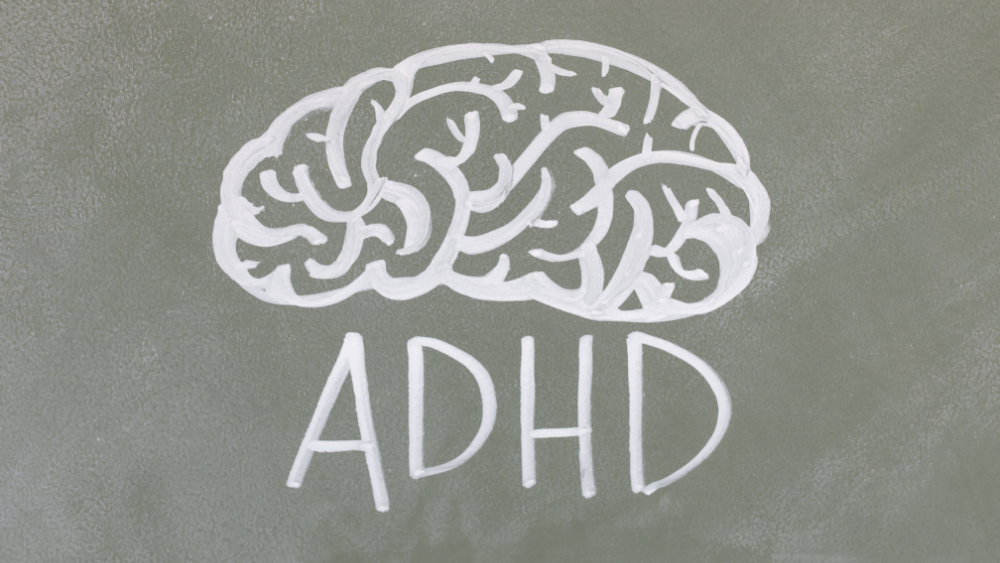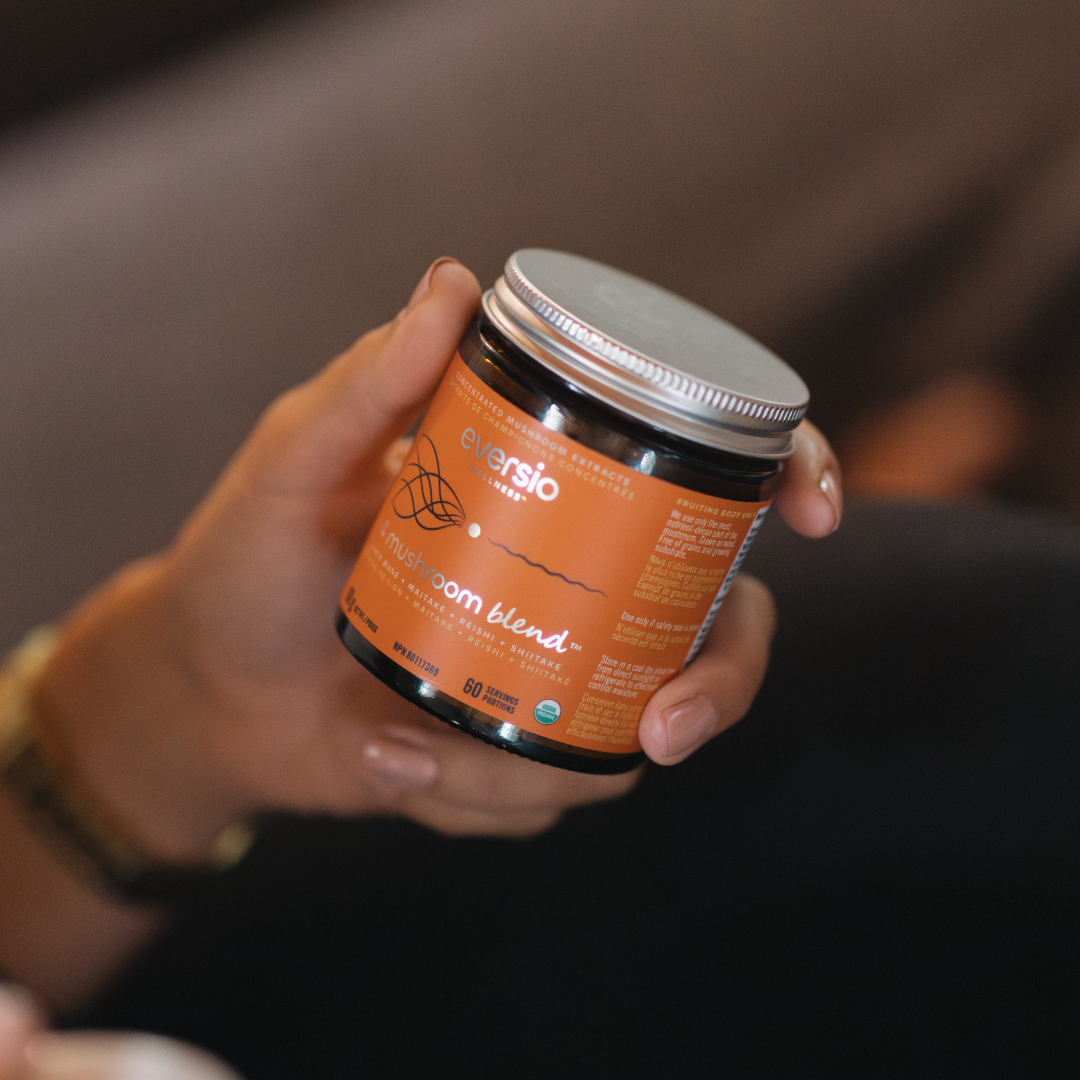March 20, 2024 | Dr. Silvana Jakupovic, ND
Attention Deficit-Hyperactivity Disorder (ADHD) stands as the most frequently encountered neurobehavioral disorder in children, though it often escapes diagnosis until adulthood [1]. The hallmark symptoms of ADHD encompass a broad spectrum: diminished focus and concentration, challenges with staying organized, difficulties in task completion, a tendency towards forgetfulness, frequent misplacement of items, struggles in decision-making, and possibly emotional dysregulation [1].
Those diagnosed with ADHD are also prone to experiencing concurrent conditions such as anxiety and depression, which can significantly amplify the difficulties they face [1]. Moreover, ADHD can severely impact an individual's social life and overall functioning. Those affected may encounter obstacles in forming and maintaining social relationships, exhibit increased engagement in high-risk behaviours, face employment instability, and struggle with academic achievements [1].
Despite the availability of pharmaceutical remedies aimed at managing behavioural disorders, these treatments often come with numerous side effects and can present challenges in achieving effective outcomes. In light of these limitations, there is a growing interest in exploring complementary and alternative medicine as potential treatment avenues for various mental health issues.
• What are Alternative Treatments for ADHD?
• Lion’s Mane for Memory Improvement
• Lion’s Mane for Depression and Anxiety
• What are Alternative Treatments for ADHD?
What are Alternative Treatments for ADHD?
Among these alternative approaches, functional mushrooms have gained attention for their cognitive-enhancing properties, categorizing them as nootropics. Nootropics are substances known for their ability to improve cognitive functions and memory and facilitate learning processes. Beyond their cognitive benefits, medicinal mushrooms offer a range of health advantages due to their versatile nature, presenting a unique and potentially beneficial option for individuals seeking alternative treatments. Their ability to address multiple facets of health simultaneously sets them apart from conventional products, offering a holistic approach to managing conditions like ADHD and its associated challenges.
Lion’s Mane for ADHD
Research highlights Lion's Mane's potential to improve cognitive function and mood and its neurotrophic properties through the induction of Nerve Growth Factor (NGF) synthesis, which is crucial for maintaining cognitive functions [2]. Memory impairments, particularly long-term retention, stand out as a commonly observed challenge among individuals diagnosed with ADHD [3]. Research has been done investigating the potential cognitive benefits of the Lion's Mane mushroom, focusing on the neuro-enhancing effects of its bioactive components, hericenones and erinacine [2].
Lion’s Mane for Memory Improvement
One research study highlights how the administration of standardized extracts from these two compounds leads to a significant upsurge in neurogenesis within the hippocampal and cerebellar regions of the brain [2]. Although the cerebellum predominantly orchestrates motor functions, the hippocampus plays a fundamental role in the faculties of learning and memory [2]. This suggests that Lion's Mane's ability to foster the development of new neural tissue in the hippocampus might serve as the foundational mechanism through which it boosts memory.
In addition to memory concerns, individuals with ADHD often exhibit diminished levels of Brain-Derived Neurotrophic Factor (BDNF), a crucial protein expressed in areas of the brain such as the cortex and hippocampus [4]. BDNF is instrumental in regulating neural circuits that govern a wide array of cognitive and emotional processes, including attention, thought patterns, emotions, social interactions, and motor control—all of which are intimately linked with the symptomatology of ADHD [4].
Components extracted from the fruiting bodies of Lion’s Mane have demonstrated efficacy in elevating BDNF levels in the brain [5]. This elevation, coupled with an increase in other neurotrophic factors, potentially paves the way for mitigating various symptoms associated with ADHD, offering a promising avenue for research and therapeutic interventions in addressing the complex interplay of cognitive functions affected by ADHD.
Lion’s Mane for Depression and Anxiety
As mentioned, depression, anxiety, and sleep disturbances frequently occur as comorbidities in ADHD. A 2019 study offers intriguing insights into potential therapeutic interventions using Lion’s Mane mushroom [6]. This research aimed to evaluate the effects of an eight-week Lion’s Mane supplementation on symptoms of depression, anxiety, sleep problems, and binge eating in a cohort of overweight individuals. Central to this investigation was measuring serum levels of brain-derived neurotrophic factor (BDNF) and its precursor, pro-BDNF, both before and after the supplementation period [6]. Notably, findings revealed an increase in serum pro-BDNF levels, coinciding with marked improvements in depression, anxiety, and sleep quality among participants [6].
While research on Lion’s Mane underscores the mushroom's promising therapeutic effects for neurodegenerative diseases, depression, and cognitive impairments, the direct application to ADHD specifically has not been extensively studied, but the potential is there.
Are There Alternative ADHD Treatments?
Identifying the optimal treatment approach for ADHD often entails a long journey. For some, traditional methods fall short of meeting all the needs of individuals with ADHD, sparking a growing interest in alternative treatment options. This search for alternatives has led many to explore the benefits of natural ADHD supplements, particularly for those seeking non-stimulant medication alternatives. Incorporating functional mushrooms, such as Lion’s Mane, into one's daily routine could be a potential solution for such individuals.
We hope you have found this article informative. If you have any questions or comments, please leave them in the comment section below!






















Leave a comment
All comments are moderated before being published.
This site is protected by hCaptcha and the hCaptcha Privacy Policy and Terms of Service apply.